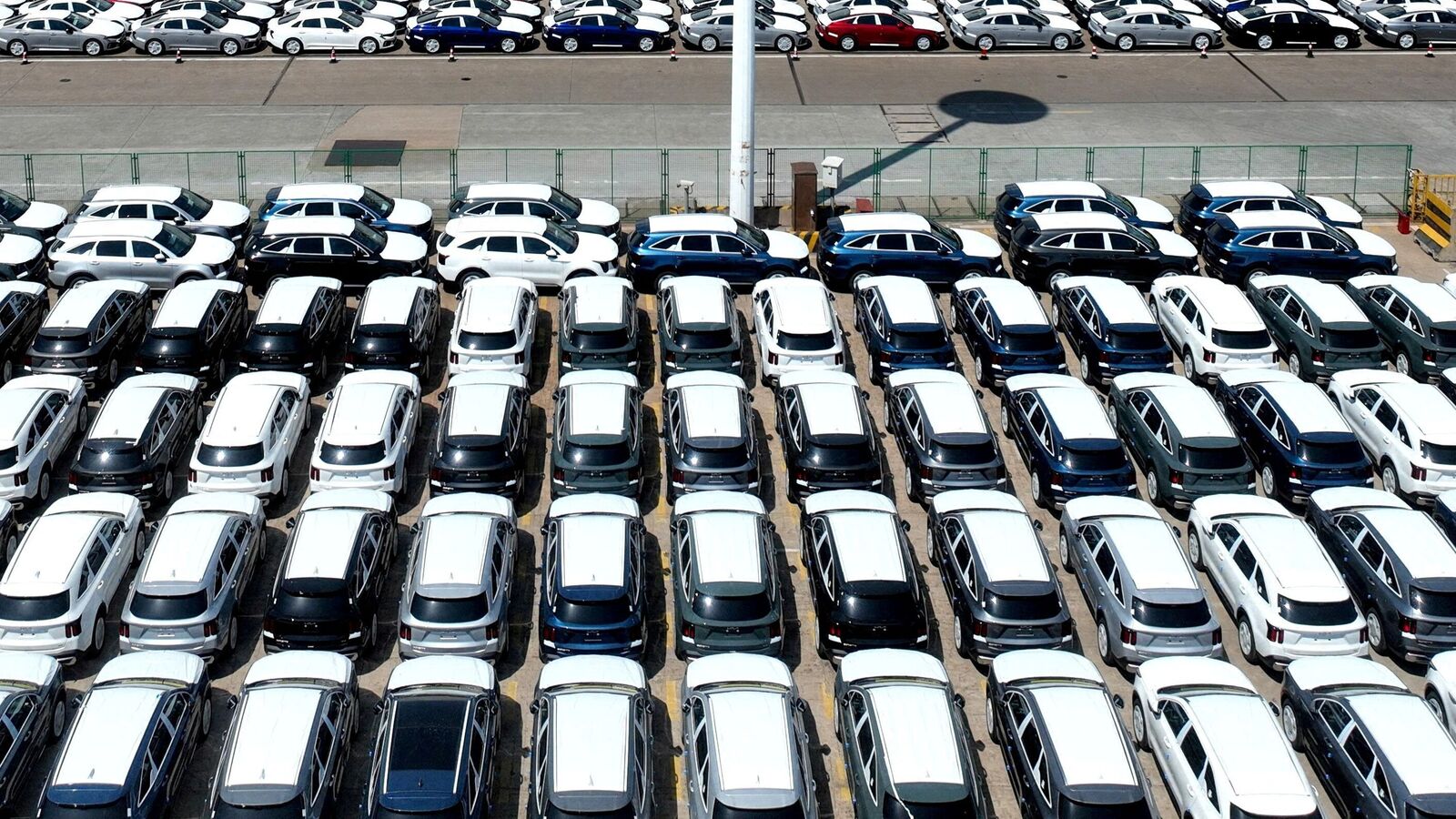The European Union is aiming to hold a vote on introducing definitive tariffs on electric vehicles imported from China on Sept. 25, according to peopl
…
The European Union is aiming to hold a vote on introducing definitive tariffs on electric vehicles imported from China on Sept. 25, according to people familiar with the plan.
The vote would pave the way for the duties to kick in from November unless a qualified majority — 15 member states representing 65% of the EU’s population — opposes the move. The date of the vote could still change, said the people, who spoke on the condition of anonymity.
The EU has proposed hitting SAIC Motor Corp., Volvo Car AB parent Geely and BYD Co. with duties of 36.3%, 19.3% and 17%, respectively, on top of the 10% tariff that exporters from China are already subject to. Those rates are expected to be slightly revised downwards, Bloomberg previously reported. Tesla Inc. would face an additional rate of just below 8%, plus the base duty.
Also Read : Auto industry welcomes ₹10,900 crore PM E-Drive Scheme.
European Commission President Ursula von der Leyen launched the EV investigation last year, saying that Chinese companies unfairly benefit from state subsidies and are flooding Europe with excess production. In response, Beijing launched anti-dumping investigations into EU exports of brandy, dairy and pork products.
China and the EU have been holding talks to explore alternatives to the tariffs but these haven’t been fruitful so far. For Brussels, any solution has to be grounded in World Trade Organization rules and address the underlying harmful subsidies an EU probe identified.
Discussions will continue next week when Chinese Commerce Minister Wang Wentao visits Europe to meet with the EU’s trade chief, Valdis Dombrovskis.
Also Read : Mahindra Thar Roxx reaches dealerships, bookings open unofficially. Key facts to know.
China claims the measures are protectionist and has threatened to retaliate with duties of its own on a range of sectors while seeking an agreement to solve all the disputes as a package. Beijing is also challenging the measures at the WTO. The EU sees the Chinese investigations as retaliation and intends to defend its interests in all three probes, the people said.
Spanish Prime Minister Pedro Sanchez raised eyebrows earlier this week when he said the EU should re-examine its plan to impose the tariffs during a visit to China. Germany has also been pushing Brussels to find an alternative to the duties, as its auto industry has voiced concerns about the measures.
Watch: Mercedes Maybach EQS 680 SUV first look: What India’s most expensive electric car offers
Germany and Spain both have massive financial incentives to avoid a spiral of tit-for-tat restrictions. German automakers including Volkswagen AG and BMW AG would be hit hardest in a trade spat, as they collectively sold 4.6 million cars there in 2022.
Spain is the EU’s second largest car-manufacturer and is seeking to attract investments from China to develop its EV industry — part of the reason behind Sanchez’s trip there this week.
Check out Upcoming EV Cars in India.
First Published Date: 14 Sep 2024, 09:49 AM IST

